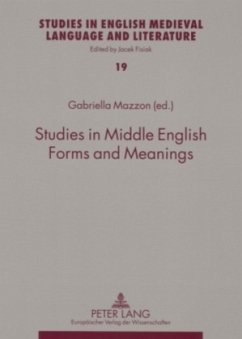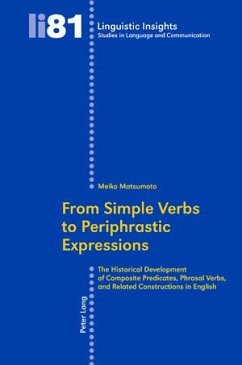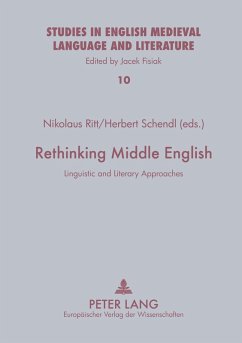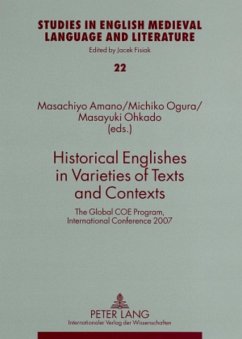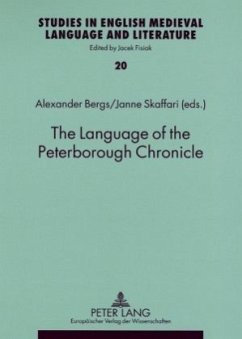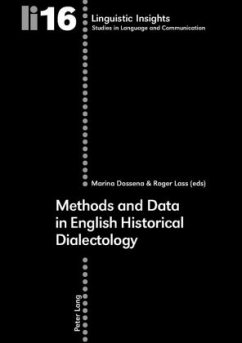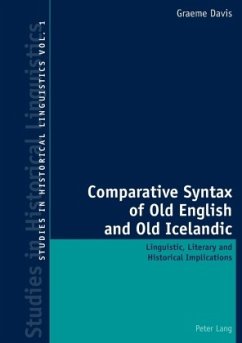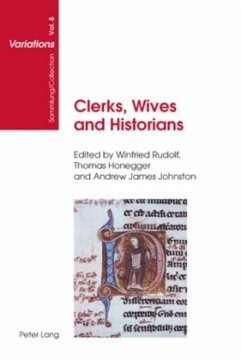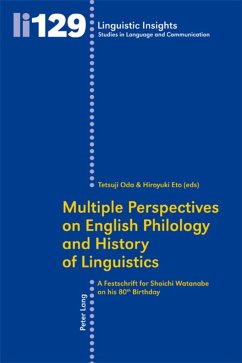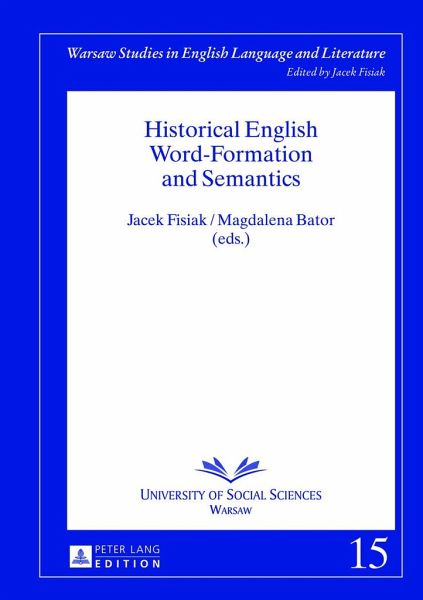
Historical English Word-Formation and Semantics
Versandkostenfrei!
Versandfertig in 6-10 Tagen
112,65 €
inkl. MwSt.

PAYBACK Punkte
0 °P sammeln!
This is a volume of selected papers presented at the International Conference on Historical English Word-Formation and Semantics held in Warsaw on 10-11 December 2011 and organized by the School of English at the Warsaw Division of the University of Social Sciences in Lódz. The conference was attended by scholars from Poland, USA, Germany, Austria, Belgium, France, Japan, Italy, Ukraine and Slovakia. Their papers covered a wide range of topics concerning the area of word formation and semantics in Old and Middle English.



